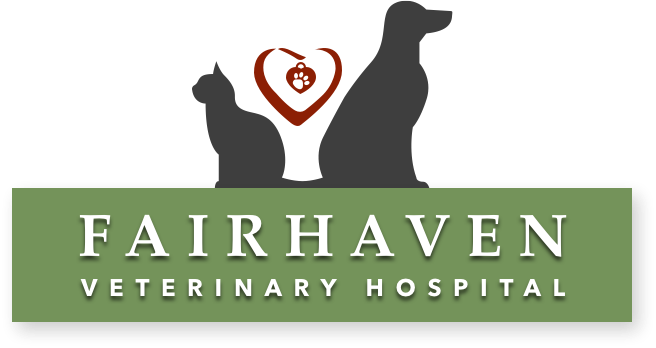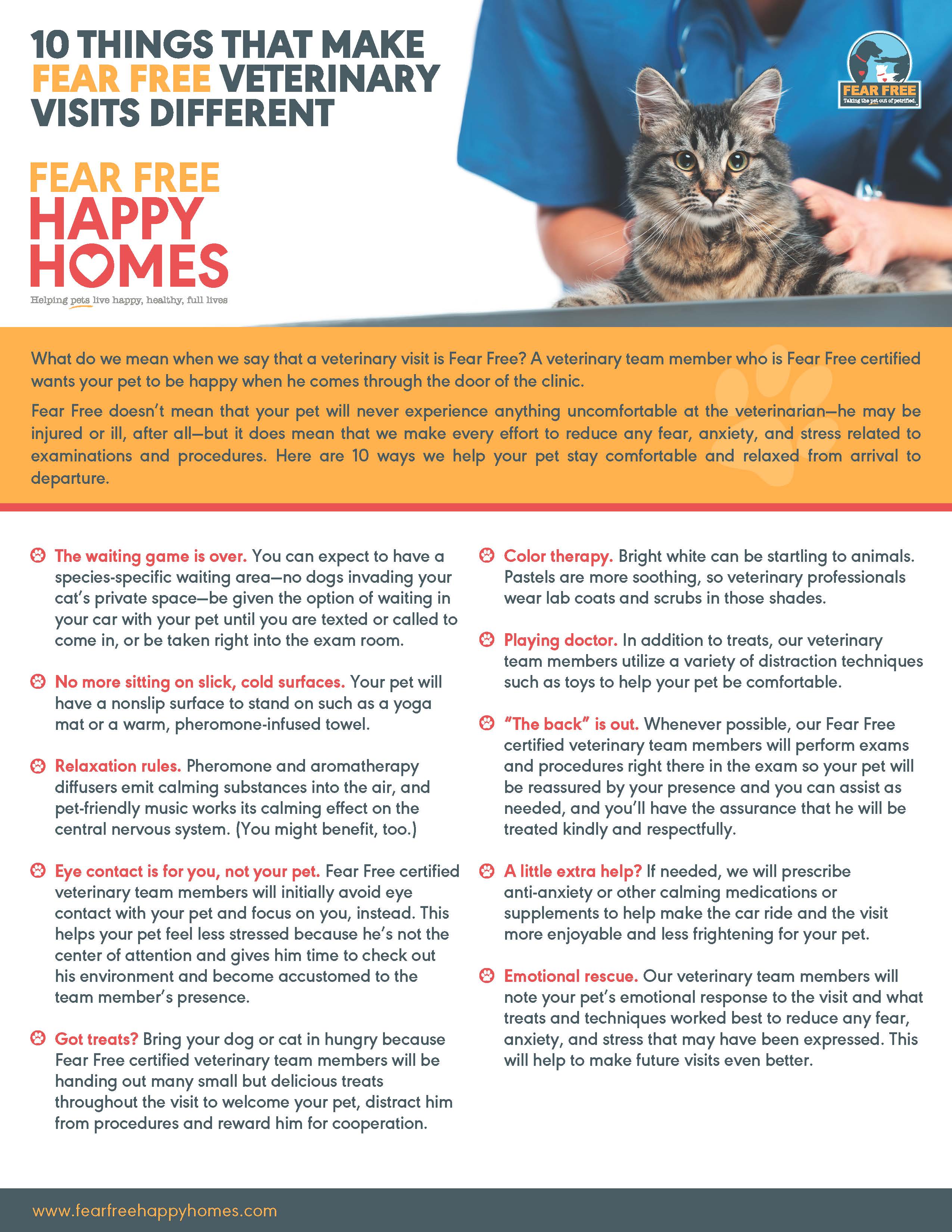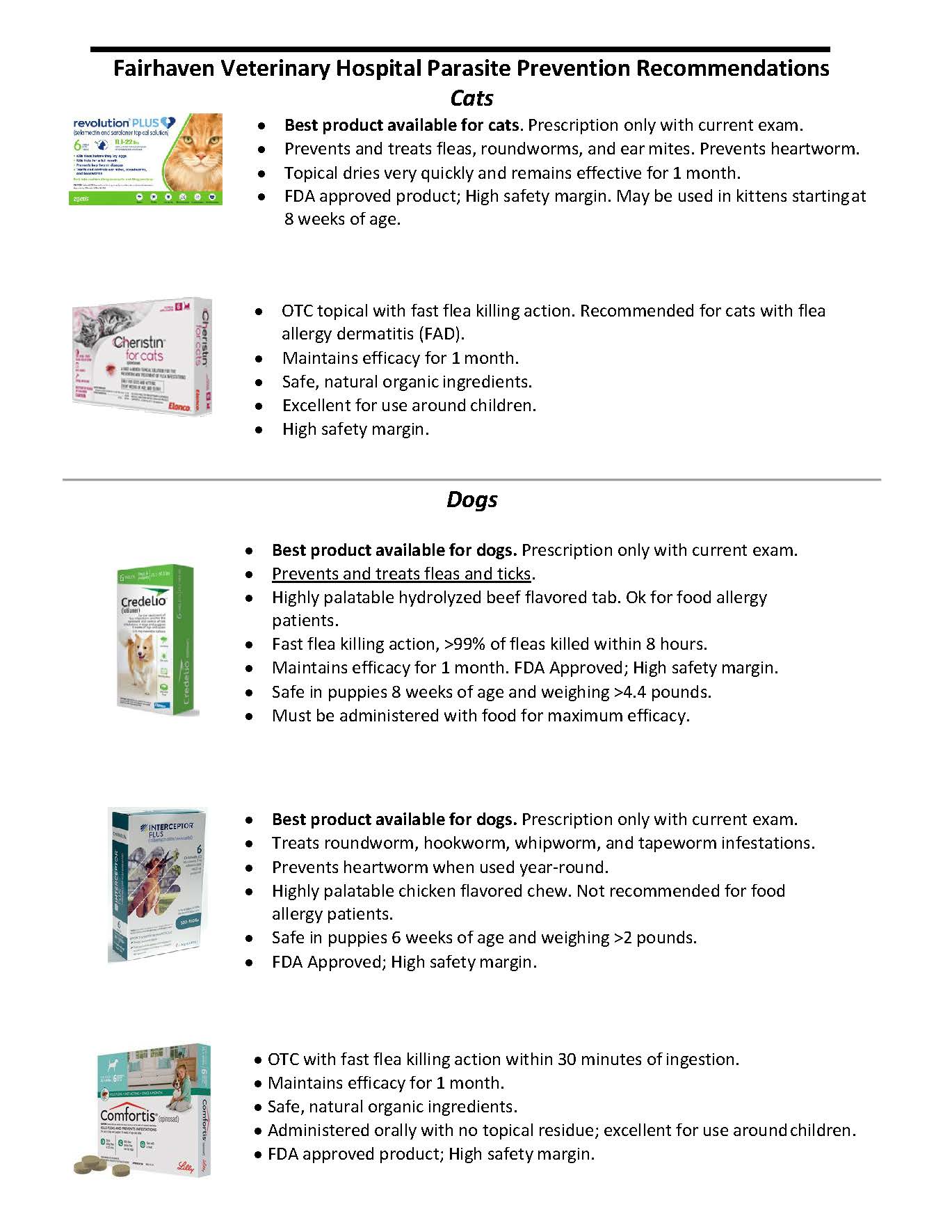Dear Valued FVH Client!
We very much enjoyed meeting you and your recent addition(s) to the family and thank you for entrusting us with all their healthcare needs. Be assured that we will honor that trust by always providing your pets with compassionate and Fear-Free care.
Our modern hospital, well-equipped hospital is capable of meeting the vast majority of the health care needs for your pets. Our doctors and staff maintain excellent, up-to-date medical knowledge and surgical skills through regular medical-journal reading and frequent attendance at continuing education seminars. We also consult regularly with specialists by phone or online to ensure the best possible care and will offer a referral to a boarded specialist when we think your pet’s condition warrants an expert’s attention.
We believe our greatest strength resides in the people we employ to serve you and your pets. Each member of our staff is committed to providing top-notch medical care, personal service, and a compassionate approach to the needs of our clients and patients. We are here because we care about you and your pet, and we hope it shows!
Thank you again for choosing the Fairhaven Veterinary Hospital. If you have any remaining questions, please don’t hesitate to call us. We’re here to help! For more information about our hospital, educational resources, and community information be sure to explore our entire website.
Respectfully yours,
The Doctors and Staff at Fairhaven Vet
Follow us on Facebook, Instagram and Twitter!
FVH CLIENT POLICIES
- Appointments are scheduled for 30 minutes so that we may devote ample time to each and every patient. Cancellation of appointments must be 24 hours before scheduled visit. Two no-show appointments will result in low priority scheduling or drop-off only status.
- Late arrivals will be seen up to 10 minutes after scheduled visit; however, the overall visit may be shortened so that we may stay on schedule as a courtesy to other clients. Late arrivals of greater than 10 minutes will need to reschedule unless our schedule can accommodate.
- Our hours of operation are from 8 a.m.-6:30 p.m. M-F. We have appointment priority scheduling and do not have the ability to take walk-in appointments. We want to make sure we are here when you need us most, as such, we will offer drop off appointments when needed to work patients in between appointments. Surgeries and dental cleanings are offered M-F with drop off times between 7:30 a.m.-8:30 a.m. Most surgical release times are scheduled between 4 p.m.-5:30 p.m.
- Payment for service is expected at the time of visit. We do not offer billing or held checks. Scratchpay loans are available to those who qualify. We accept Cash, Debit, Visa, MasterCard, American Express, Discover Cards, and CareCredit. Estimates are available before any procedure, please inquire before services provided. Please see financial policy sheet attachment for more details.
- Scratchpay is a wonderful tool to help you afford veterinary care, allowing for payment plans out to 24 months on approved credit. The service provides a 30 day no interest option and very quick approval before you even arrive to the hospital, allowing you and the Veterinarian to make the best medical decisions for your beloved pet. Please inquire for details.
- Prescription refill requests require at least 48 hours advance notice so that we may verify authorized refills with the attending Veterinarian. We completely understand the convenience of mail order for drug refills, diets and flea products. Our online store is available 24 hours a day for your shopping convenience. Prices are competitive against many on-line retailers and all products purchased through our store carry any current manufacturer’s guarantee, unlike non-veterinary retailers. Please be sure to allow plenty of time for prescription refill request authorization by the attending DVM and package transit time when utilizing the online store.
- We will see emergency appointments during our regular business hours. All after hour emergencies should contact the Animal Emergency Clinic (AEC) at 360-758-2200.
- Our website www.fairhavenvet.com is a great resource for medical information and pre-appointment forms. In addition, our PetDesk smart phone app allows you access to your pet’s important medical information and provides an option for you to make appointment and prescription refill requests 24 hours a day, when it is most convenient for you!
FINANCIAL POLICY
Thank you for choosing the Fairhaven Veterinary Hospital. Our primary mission is to deliver the most comprehensive and compassionate veterinary care available for your pet. An important part of this mission is making the cost of optimal care as easy and manageable for our clients as possible by offering several payment options.
Clients are encouraged to consider pet insurance as a tool to manage unforeseen medical emergencies. The independent website, petinsurancereview.com, offers user reviews and insight into many different insurance companies.
Payment Options:
Fairhaven Veterinary Hospital requires payment in full at time of surgical/inpatient discharge or outpatient service completion.
You can choose from:
- Preferred Payment Methods
– Cash, Visa®, MasterCard®, American Express®, Discover Card®, CareCredit®
- Alternate Payment Methods (details available on request)
– Scratchpay®1
Additional Policy Information:
Fairhaven Veterinary Hospital charges $35 for returned checks. For clients with pet insurance, we are happy to provide you with the necessary documentation to submit a claim to your insurance carrier. If you have any questions, please do not hesitate to ask. We are here to provide the best veterinary care available for your pet.
¹Subject to credit approval
PUPPY/DOG CARE RECOMMENDATIONS
Vaccinations: Continue vaccinations every 3-4 weeks until 16 weeks old. The final 2 boosters should be given after 12 weeks of age to ensure a strong immune response.
- Puppies should be routinely dewormed every 2- 4 weeks for at least 4 treatments to eliminate common internal parasites. Please give the Strongid dewormer as prescribed.
- Please bring a fecal sample in the coming week for analysis to ensure all parasites are being treated.
Nutrition: We recommend Hill’s Ideal Balance or another high-quality puppy food. Feed measured quantities three times daily to maintain lean body condition (Can transition to twice daily feeding at 4-months of age). Adjust food to keep puppies in lean-body condition throughout their growing stage. This will help prevent adult obesity and is critically important in minimizing joint problems in large-breed dogs.
Flea/Parasite Control: We recommend monthly oral administration of Credelio year-round to prevent flea and tick infestations. In addition, all dogs should be given monthly Interceptor Plus, which treats many internal parasites and prevents heartworms. A fecal analysis should still be performed annually to detect the presence of other less common parasites along with Giardia and Coccidia, which are not treated by use of prevention products and more common throughout our region.
Spaying/Neutering:
- Veterinarians have recommended for decades that dogs be spayed/neutered at 5-6 months of age, just before they become sexually mature. This prevents unwanted breeding, behavioral problems associated with puberty and hormone production, and eliminates the chance of breast cancer in female dogs.
- Recent studies suggest that neutering large-breed dogs before 12 months of age may increase their risk of skeletal/joint problems, and slightly increase the risk of some cancers later in life. More statistics are needed, but at this time we recommend considering delayed neutering large-breed male dogs (expected to reach an adult weight of 60 pounds or more) until 12-18 months of age IF the following criteria are met:
- The dog is adequately confined to prevent unwanted breeding and “roaming”
- Unwanted behavioral problems (urine marking, aggression, “humping”) do not become apparent.
- We continue to recommend spaying female dogs at 5-6 months of age. While the data concerning early neutering also applies to female dogs, other risks of not neutering (increased incidence of mammary cancer and the challenge of maintaining a female dog in heat) continue to favor early spaying at this time.
Dental Care: Healthy adult dogs should receive their first prophylactic dental cleaning starting at 3 years of age for small breeds and 4 years for medium and large breeds.
Permanent Identification: We recommend that a microchip be placed under your pup’s skin to help ensure that she is rapidly returned to you if ever lost. This can be done at the time of spaying/neutering if being done at 5-6 months of age, or can be done at one of the early puppy visits in animals where neutering is going to be postponed.
BEHAVIOR
House Training: Take your puppy out frequently (especially after meals) and praise urination/defecation outside. Puppies need to be CONSTANTLY monitored indoors and corrected if they eliminate in your sight indoors (scolding for an accident out of your sight simply doesn’t work). For this reason, puppies should have no unsupervised time indoors until they have been reliably eliminating outdoors for at least 1-full month. When you can’t immediately supervise your pup, it should be confined to an area easily cleaned.
Chewing/Biting Behavior: Puppies need to chew and should be given appropriate chew toys (large/sturdy enough that they are not swallowed!). If your puppy is biting you, tell him, “OW!! No Biting!”, and briefly end all play/interaction. Then return with an appropriate chew object
Socialization: Provide lots of opportunity for positive socialization, but stay away from dog parks, trails, and other areas where dogs frequent until your pup has received his last vaccines.
Note that we strongly encourage you to take your puppy to “Puppy Classes” for training help and to allow socialization.
Pet Health Insurance: Now is the time to investigate Pet Health Insurance if you have any interest, before your puppy develops any pre-existing conditions, which are excluded from coverage “life-long.” The website, petinsurancereview.com is an excellent resource to investigate insurance options.
FVH ADDITIONAL RECOMMENDATIONS
- Nutrition is one of the most key elements of a pet’s good health. We recommend a quality balanced diet be fed based on your pet’s recommended ideal body weight established by your Veterinarian. Dogs may be fed dry or canned as desired and the total recommended daily volume may be broken up into multiple meals. Cats may be fed dry or canned, but we do encourage those cats receiving dry only to also be offered some canned each week. This can be important as many senior cats may require a change to a canned diet as they age. Fresh water should always be available. Calorie content of treats should be factored into total daily intake; if desired, you may wish to hold aside a portion of the daily feed and give as a treat. Maintaining the ideal weight is important in preventing diseases associated with obesity such as arthritis, heart disease, and diabetes.
- For additional recommendations on quality diets available for your pet, we trust the Pet Stop, located in Sehome Village, to guide your decision-making process. Our LVT staff would be happy to review any diet you currently feed for nutritional quality, balance, and volume to feed.
- Training and socialization are very important to the well-being of your dog at any age. Embarking Dogs, Tails-a- Wagging, Nichols Dog and Animal Training, and Confident Canine Puppy Training are all aversive free, positive reinforcement trainers providing comprehensive puppy and adult dog training. Check out our website for other recommended trainers who use positive, reward-based training methods congruent with our Fear Free mission.
- Undesirable behavior issues in dogs and cats can occur at any age and may be very frustrating to an owner. Often we can offer recommendations for altering behaviors through a consultation with our doctors or licensed veterinary technicians. Our recommendations for training systems and guides can be found through Dr. Sophia Yin’s veterinary behaviorist website at drsophiayin.com. Please also check out fearfreehappyhomes.com for information on understanding your pets’ body language, behavior, and other tips. Free and paid subscriptions are available.
- Why buy your prescription drugs and flea medications from Fairhaven Veterinary Hospital?
-
- FVH purchases all of our drugs and prescription flea products directly from the manufacturer. Online pharmacies often get their product through diversion from domestic or foreign sources. Proper handling of product while in the possession of diverters cannot be guaranteed.
- FVH will not sell expired medications. Some online pharmacies have been found to sell outdated or short dated product.
- Manufacturers will only guarantee certain products in the event of an adverse reaction when purchased directly from a licensed veterinarian. Pharmaceutical manufacturers strongly believe their products will be used correctly only when discussed with trained veterinary staff. Human Pharmacies and online retailers do not have pharmacists trained in veterinary pharmacology; they are unfamiliar with how very different companion animals are from human patients.
- FVH is a family owned business that has been a proud member of the local community. We provide local jobs, maintain high ethical standards, support many local non-profits, and work to create a client focused experience based on compassion.
FVH Parasite Detection and Prevention Guidelines
DETECTION (Fecal microanalysis)
-
- Puppies and Kittens- Test at initial visit and again at 6-18 months of
- Adult Dogs and Cats
- Annual fecal analysis for all patients.
- Fecal performed whenever abnormal feces or unexplained weight loss present.
- Dogs that frequent a boarding kennel, play facility or dog park should be tested regularly or as required by the organization.
- Cats and dogs on parasite prevention products should still be fecal tested annually to detect Giardia, Coccidia, and other less common parasites that are not cleared by current prevention products.
- Clients should provide a fresh sample in a baggie or small container; generally, a 3oz. sample is sufficient. Results are available within 24-48 hours.
PREVENTION (Deworming and Parasite Prevention Products)
- Puppies and Kittens
- Prophylactic deworm at 2, 4, 6 and 8 weeks of age, then deworm monthly until 6 months of age.
- Adult Dogs and Cats
- Year round use of parasite prevention products are recommended for all dogs (Interceptor Plus), outdoor cats, and indoor-only cats that live in a household with dogs or young children (Revolution Plus).
Common parasites to our area:
- Fleas/Ticks– Treat monthly with Credelio, orally (Dogs) or Revolution Plus, topically (Cats). Pets should be treated year-round since our winters are not harsh enough to suppress flea and tick populations. Infestation may lead to allergic dermatitis, anemia, itching and, in rare cases, serious disease for companion animals. Severe infestation may also require treatment of environment.
- Heartworm- Heartworm is a serious disease that results in severe lung disease, heart failure, other organ damage, and death in pets, mainly dogs, cats, and ferrets. It is caused by a parasitic worm called Dirofilaria immitis. The worms are spread through the bite of a mosquito. Climate change is increasing the potential for heartworm in the Pacific Northwest.
- Roundworms- Primary route of infection is via mother at birth, direct ingestion via the environment or ingestion of infected vertebrate host. Can occur in cats throughout life, but less common in adult dogs. Children and individuals with suppressed immune systems at higher risk for transmission and can lead to serious medical disorders.
- Coccidia- Protozoa with primary route of infection coming from contaminated environment or ingestion of contaminated host; People are not considered at risk for transmission. To prevent do not allow ingestion of wild animals and solicit only properly cleaned pet facilities.
- Tapeworms- Various species are prevalent and infection typically via ingestion of fleas or contaminated host. Can be a zoonotic, although rarely causes serious human medical concerns.
- Giardia- Differing forms affect cats, dogs and people with transmission between groups not currently demonstrated. Infection is through direct fecal-oral contact with cysts or contaminated water source/environment.
- Toxoplasmosis- A very serious zoonotic disease transmitted through the feces of infected cats to humans. Prevention in cats is best achieved by not allowing hunting of wild animals that may be infected, ingestion of raw or undercooked meat, and daily removal of feces from litter box. Pregnant women and immunosuppressed individuals should avoid cleaning of litter boxes and wear gloves when gardening to avoid exposure to cat feces. Additional recommendations are available at www.capcvet.org.



